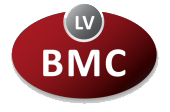Molecular ecology and biosystems
The research direction “Molecular ecology and biosystems” focuses on molecular characterization of populations of diverse organisms including pathogens in the context of OneHealth approach. Historically, the focus of BMC research activities was on issues that are directly related to human health, although many research groups were also engaged in studies of other biological subjects that were in some way complementary to the main research direction. Over the past three years our technical capabilities have been considerably expanded (massive parallel sequencing and bioinformatic data analyses), which , which has made the BMC as an attractive partner organization for environmental monitoring of pathogenic organisms including SARS-CoV-2 variants and plant pathogens. Experience that was gained during COVID-19 pandemic and trends in environmental microbiome research have bolstered our ambitions to lead molecular ecology research in fields of bacteriophage discovery and microbiome studies. This trend is also strengthened by development of a new research group led by Dr. Zigmunds Orlovskis, who returned to Latvia after PhD and postdoc studies in the UK and Switzerland, respectively. In addition, this direction will be strengthened by Dr. Indriķis Krams, who recently has joined the BMC with a research project on molecular mechanisms of animal behaviour.
Several objectives can be highlighted from the previous research activities and future goals:
- Characterization of sensu lato microbiome from diverse environments, including environmental samples from wastewater, agricultural lands or human or animal organisms focusing on characterization of pathogenic organisms.
- Characterization of plant – microorganisms interactions focusing on fundamental aspects of regulation of such interactions as well as on potential applications in agriculture.

